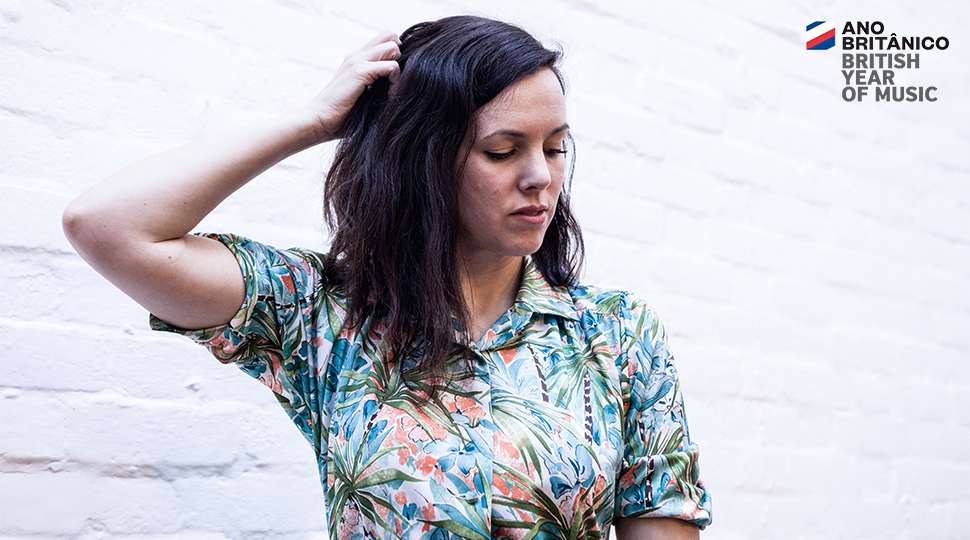Throughout 2017, Casa da Música, Porto, presents a year-long season of UK classical music, in partnership with the British Council and the GREAT Campaign. The Year of British Musicincludes around 30 concerts and over 1,000 educational activities, with a particular focus on new classical music.
To complement the programme, we have worked with Casa da Música to showcase talented emerging composers from the UK. During the opening weekend, composers Edmund Finnis, Emily Howard, Daniel Kidane and Philip Venables visited Porto to present their work and meet with festival producers and organisations interested in new music. A further six composers have been invited to join us for an online showcase designed to give their music a platform and enable programmers to explore their work in detail.
Anna Meredith is the second of those six composers, whose work in a variety of contexts will be familiar to many. In 2016 alone, Anna’s debut album Varmints won the prestigious Scottish Album of the Year award and she also premiered Anno, her multi-media collaboration with Scottish Ensemble taking inspiration from Vivaldi’s Four Seasons, which received widespread critical acclaim. In the same year, she arranged David Bowie’s “Starman” for a special BBC Proms performance in tribute to the late singer.
We carved five minutes out of Anna’s busy schedule to ask her about her approach to composing music that remains fresh and surprising for herself and her audiences.
You described to BBC Radio 3 – for Composer of the Week – how your compositions often first start from sketches of graphic shapes on paper that then form a timeline for the story of the piece. What is your next step when composing?
After I make the sketches I then audition out bits of material in my head, or singing to try see if I can find the right kind of ideas to mark out specific moments on this timeline … sort of musical markers and its then a matter of zooming in and filling in the gaps form there.
When you write, do you know which genre you are going to work in before you start or does the music come out and then you can identify the genre later?
I don’t think I write in different genres, I just write music that is used in lots of different contexts! In fact, I go out of my way to really not think about genre – I personally find it doesn’t help me to try to define what I’m going to write that way.
How did your involvement in the David Bowie prom come about and how did you approach your arrangement of “Starman”?
Nothing too glamorous! I’ve worked with the conductor André de Ridder on several projects so he thought of me [when it came to choosing] the arrangers. I just approached it like a normal arrangement – keeping the bones of the original but making sure I bring something of myself too.
Are there particular countries or cultures you would like to visit with your music that you’ve not had chance to so far? And why?
I’ve loved touring with my band so much over the last two years but we’ve yet to go to Asia and I’d love to play there.
What’s been your experience of music education in the UK? In what ways did studying Music at the University of York help to influence and develop you as a composer?
I loved studying at York; it was a great degree for me and where I was musically at the time. I then went to the Royal College of Music and made some amazing composer pals who have gone on to be the most important musical influences and touchstones for my writing, so grateful for that too.
Some of your work for concert hall settings have included more unusual elements (dancemats, beatboxing, orchestras using body percussion instead of instruments). How important is it for you to play with the audience’s expectations of a musical experience?
It’s not something I think about as the primary objective in the writing; I’m just trying to make the music work around the parameters I’ve set myself for the work. If anything, I’m trying to write to surprise myself and pace out any of the ‘reveals’ or unusual elements in a cohesive way.
- Catch Anna with her band at London’s Oval Space on 16 November 2017
- Find out more about Anna on her website
The Year of British Music, More in this series:
- Meet composer Daniel Kidane
- Meet composer Emily Howard
- Meet composer Philip Venables
- Meet composer Edmund Finnis
- Meet composer Shiva Feshareki


